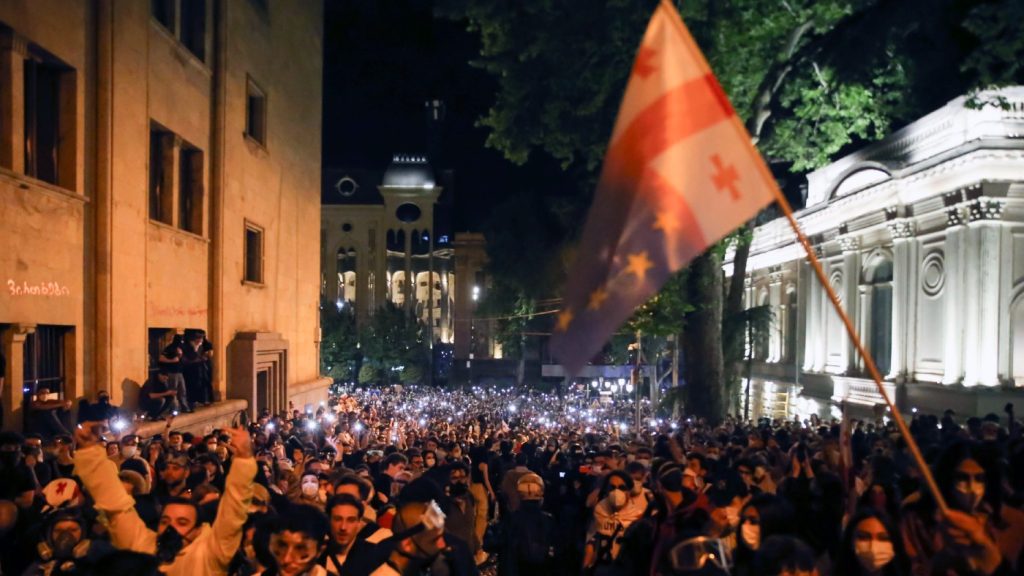The prime minister of Georgia accused the United States of backing what he criticized as “revolution attempts,” after the Biden administration’s support for anti-government protests in Tbilisi.
Irakli Kobakhidze, head of the majority Georgian Dream Party, criticized the U.S. on social platform X, amid pressure from the Biden administration and European leaders against the government’s pursuit of legislation criticized as mirroring Russia’s “foreign agents law.”
Critics of the proposed law say it will silence dissent and make opposition illegal, forcing nonprofit organizations receiving foreign funding to register as “foreign agents” with the internal security services.
Kobakhidze, after speaking with the No. 3 official in the State Department, counselor Derek Chollet, said that the law is necessary to eliminate groups the government accuses of funding “violence” and supporting “revolutionary processes.”
Kobakhidze criticized the former U.S. ambassador to Georgia, accusing him of supporting “two revolution attempts of 2020-2023 … and those carried out through NGOs financed from external sources. Had these attempts been successful, the second front line would have been opened in Georgia.”
Kobakhidze repeated the Georgian Dream Party's common argument that U.S. support for Georgian civil society organizations is fueling opposition movements in the country. The reference to a “second front line” is an argument by the party against closer ties with the European Union and NATO, warning that Georgia will be drawn into a war with Russia amid its offensive war against Ukraine.
But an overwhelming majority of the Georgian population supports joining the European Union and criticizes the government’s policies.
A poll by the International Republican Institute published in April 2023 found 50 percent had a very negative, or somewhat negative view of the government’s relations with Russia; and 44 percent viewed the government as more pro-Russian than pro-Western. A poll published by the National Democratic Institute in December 2023 found 79 percent of Georgia’s population supported joining the EU.
Protesters have massed in Tbilisi for more than a month against the “foreign agents” law. Protesters succeeded in 2023 in getting Georgian Dream Party to withdraw consideration of the law, but the party reintroduced the legislation in early April.
The government is expected to bring the draft law for a third and final reading on May 17. While Georgia’s President Salome Zourabichvili has promised to veto the law, that can be overridden with a majority vote in the Parliament.
The government's pursuit of the draft law and a violent crackdown by security forces on protesters is raising increasing alarm in Europe and the U.S.
Chollet, in a post on X, said he “reinforced” to Kobakhidze “our concern for Georgia’s current trajectory – the Government’s hostile rhetoric and support of antidemocratic legislation places Georgia’s Euro-Atlantic future at risk. The United States urges the Georgian government to recommit Georgia to the Euro-Atlantic future the overwhelming majority of Georgians desire.
Republican and Democratic senators have cautioned that if the “foreign agents law” is put into effect, Georgian government officials could face sanctions and U.S. assistance to the country could be limited.
The Biden administration has refrained from threatening a U.S. policy change but has stated it is closely monitoring developments.









